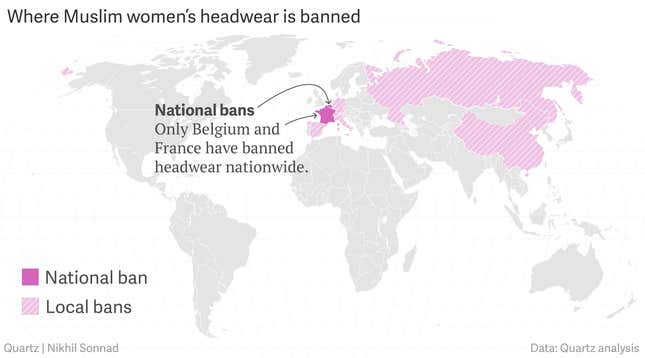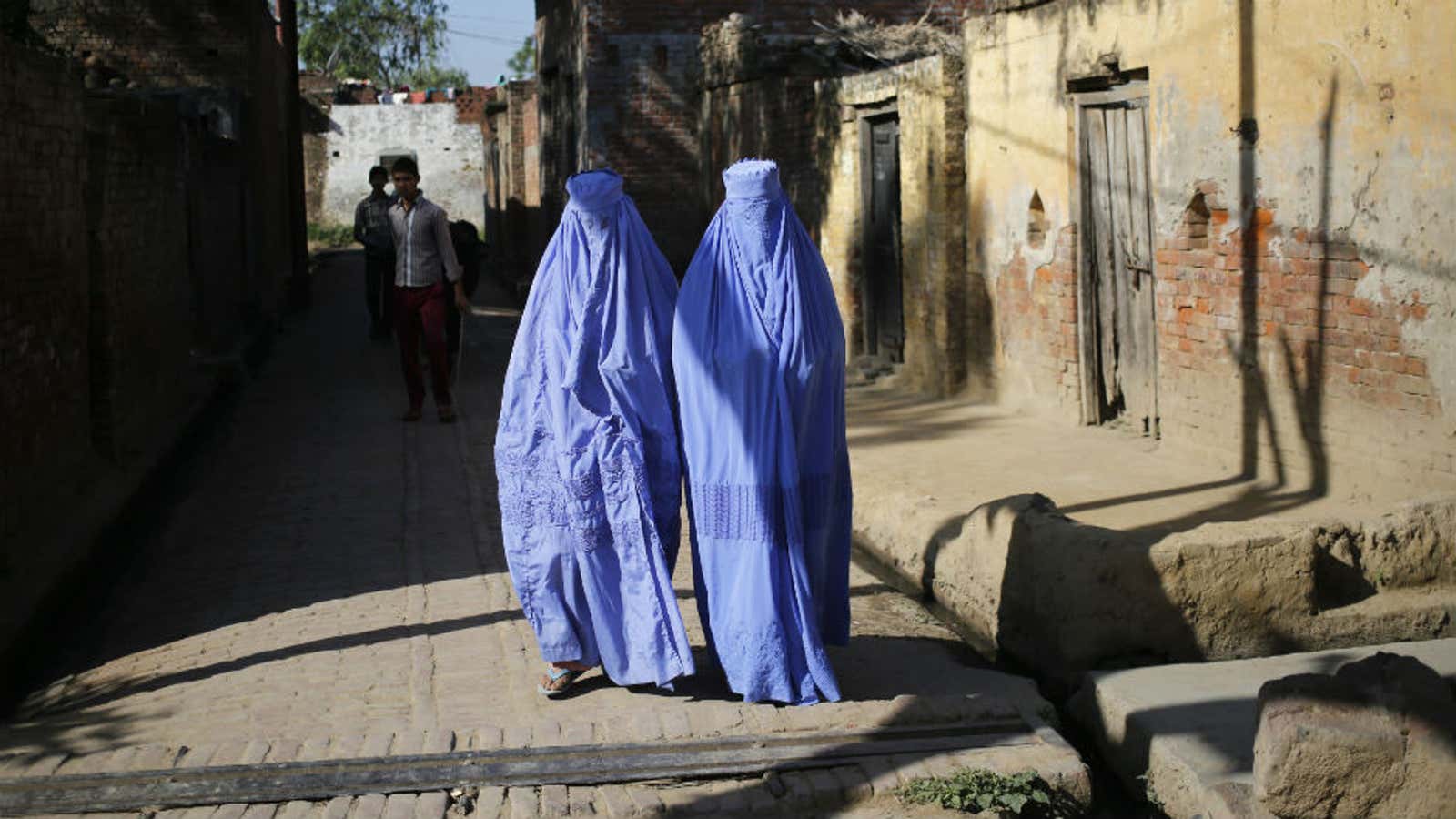There’s arguably no item of clothing more political than the Muslim veil. In some countries it is banned, in Iran and Saudi Arabia it is required by religious law, but it is nearly always a hot-button issue, spurring arguments about religion, security, and personal freedom. Just this week, the Chinese city of Urumqi in the western Xinjiang region banned Muslim women from wearing the burqa, a version of the veil that covers the entire face. It is likely that the move is part of a campaign to alienate the Uighurs, a Muslim ethnic group that forms almost half of the region’s population.
State-run news agency Xinhua emphasized that Urumqi authorities were not the first to ban the burqa, pointing to similar regulations in Belgium and France. These are the only two countries that currently have a national ban on wearing veils that cover your face in public. Other states have discussed it, or established restrictions in the past. A number of local authorities, from a Swiss canton to a region in Russia, have also introduced their own restrictions.
Here are the places in the world where Muslim women have to abandon their veils in public:

National bans:
France: In 2004, in a highly controversial law, the secularist country forbade students in state-run schools to display any form of religious symbols, including veils, crosses or Jewish skullcaps. In 2011, France went even further, forbidding concealment of people’s face in public—through a burqa, niqab (a version of the veil that leaves a slot for a woman’s eyes), but also masks or balaclavas (paywall). The penalty for the offense is $205 and can be forced to take a class on French values. Immigration from Muslim countries continues to be one of the most contentious political issues in France and other western European states.
Belgium: Brussels followed suit soon after France, banning full-face veils in 2011, an offense punished by a $197 fine or up to seven days in jail. The bill was passed almost unanimously in the Belgian parliament, with lawmakers citing security reasons for the ban, and claiming the veil is a tool of oppression.
Local bans:
Italy: Though the country has no national regulations banning the veil, in 2010 the northwestern town of Novara imposed its own restrictions on clothing that impedes identification. Local authorities from the anti-immigrant political party, the Northern League, implemented measures such as a ban on the “burqini”—a modest swimsuit worn by religious Muslim women—in the town of Varallo Sesia.
Spain: In 2010, Barcelona banned burqas and niqabs in the city’s municipal buildings, as did several other towns in the surrounding Catalonia region. The supreme court overturned one of the local bans as infringing on religious freedom, but the town of Reus remains defiant.
Switzerland: Residents of the Italian-speaking canton of Ticino voted in 2013 to institute a ban on full-face veils. Critics pointed out that as so few women actually wear burqas or niqabs in the region, the ban was in fact meaningless.
Russia: As a result of growing tensions between ethnic Russians and Muslims from the Northern Caucasus region, authorities in Stavropol banned the headscarf in government-run schools, a decision that was upheld by the supreme court.
Attempted bans:
Other countries that have seen an influx of Muslim immigrants have discussed banning the veil. A regulation to have veiled visitors to the parliament separated from the others was scrapped in Australia in 2014; in Canada, a ban on veils during citizenship ceremonies resulted in a federal lawsuit; the debate on veils resurfaces regularly United Kingdom.
The veil has also been banned at times in countries with a majority Muslim population. The Syrian government banned veils from universities in 2010, but relaxed the regulation to appease the country’s Muslims amid rising tensions in 2011. Turkey banned headscarves for decades, in an attempt to emphasize the nation’s secularism, but lifted the restrictions in 2013. In Tunisia, the headscarf debate is a tumultuous one: in February, the government issued a statement about banning full-face veils citing security concerns. The statement’s vagueness sparked a national debate.
